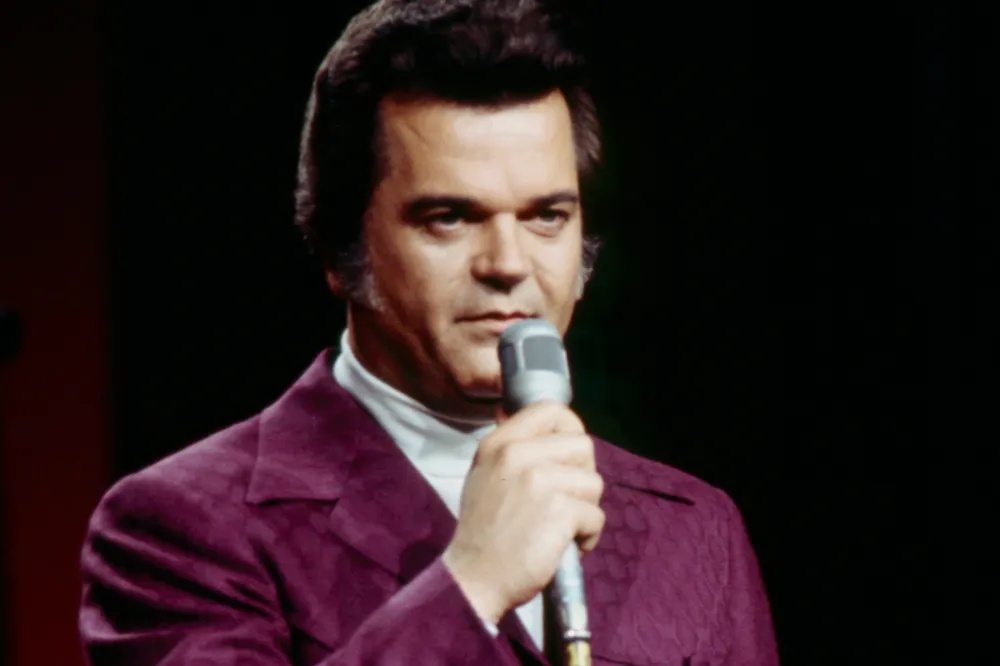
A Heart’s Unspoken Longing, Whispered Through the Cracks of Regret
Released in 1970 as the opening track and lead single from Conway Twitty’s album Hello Darlin’, the song of the same name became an instant country classic, ascending swiftly to No. 1 on the Billboard Hot Country Singles chart and remaining there for four consecutive weeks. It would go on to become Twitty’s signature tune—etched not only into his own legacy but into the very marrow of American country music. With its plaintive spoken-word introduction and aching melody, “Hello Darlin'” is more than a simple love song; it is a masterclass in emotional restraint, where every note trembles with what remains unsaid.
The genius of “Hello Darlin'” lies in its disarming simplicity. Written by Conway Twitty himself, the song eschews florid poetry or narrative complexity in favor of a bare-bones confession—delivered not to win back a lover, but to acknowledge a loss that has already taken permanent root. The opening lines—spoken rather than sung—have become iconic: “Hello darlin’, nice to see you. It’s been a long time.” In just a few words, Twitty establishes a scene loaded with emotional tension. The speaker is face-to-face with a former love, clearly still haunted by her absence, yet determined to maintain composure.
What follows is not a plea or a confrontation but a monologue steeped in sorrowful humility. The narrator claims that everything is fine—“I’m doing all right ‘cept I can’t sleep”—but this transparent façade crumbles quickly. Each verse peels back another layer of denial, revealing the raw truth beneath: he’s never moved on. He walks the streets at night alone. He dreams of her still. And most poignantly, he admits he’d be willing to try again if only she would ask.
Musically, “Hello Darlin'” is understated yet meticulously constructed. The arrangement swells gently around Twitty’s voice like a tide of quiet resignation—never intrusive, always deferential to the story being told. The steel guitar weeps softly in the background, while piano chords punctuate moments of emotional revelation with restrained elegance. Twitty’s vocal performance—smooth, resonant, and tinged with palpable heartache—is among his finest, straddling the line between stoicism and vulnerability.
Culturally, the song marked a turning point for Conway Twitty, who had transitioned from rock ‘n’ roll beginnings into country music with striking authenticity. With “Hello Darlin'”, he didn’t just cross genres; he redefined them. The song became so emblematic of his artistry that it often opened his live performances and was later used as a wake-up call for astronauts aboard Apollo missions—a celestial echo of its terrestrial ache.
In essence, “Hello Darlin'” endures not because it shouts but because it whispers—with honesty, regret, and an aching dignity that makes it timeless. It is the voice of every soul who has loved too much and said too little until it was too late.